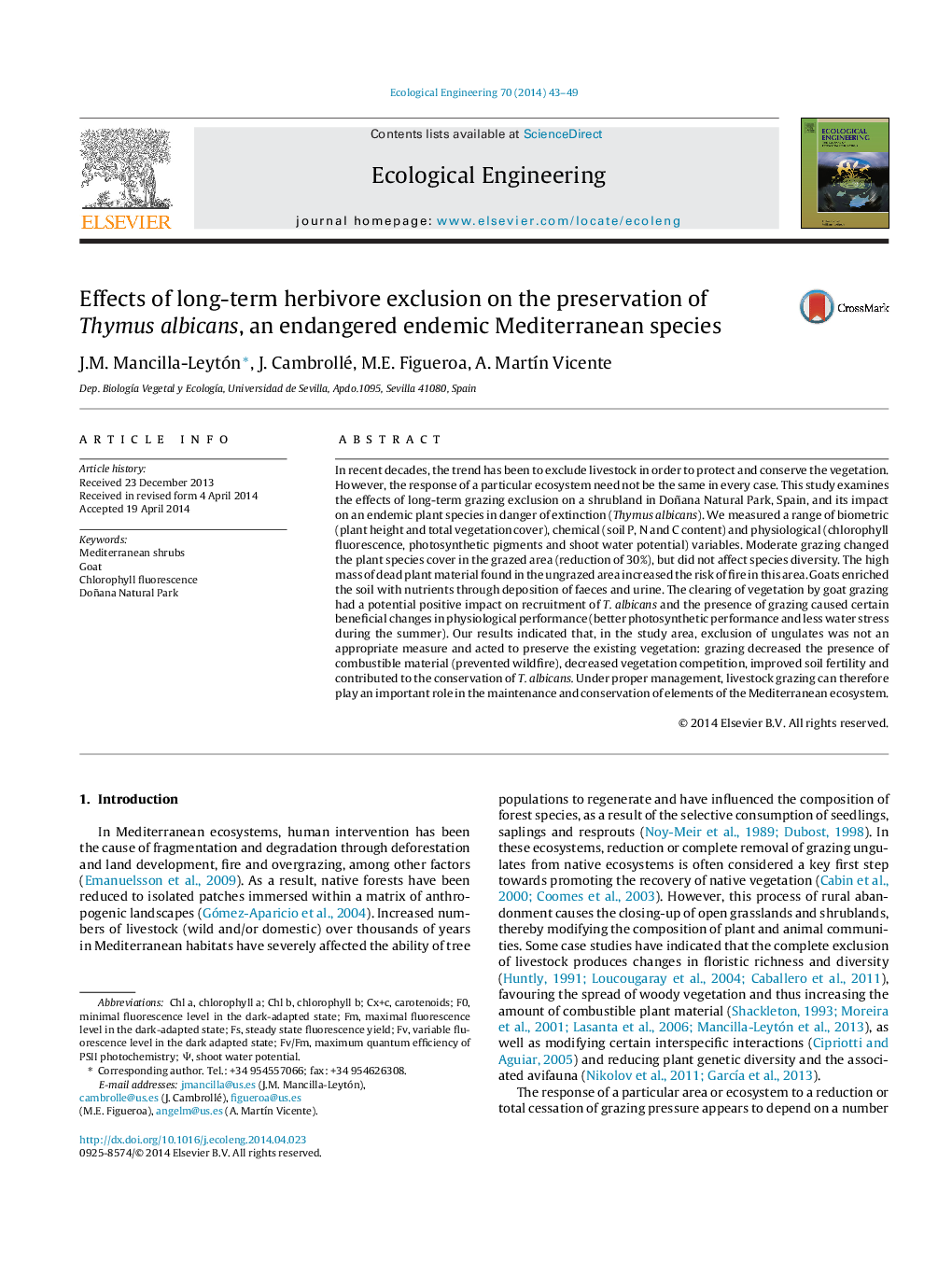| Article ID | Journal | Published Year | Pages | File Type |
|---|---|---|---|---|
| 6302100 | Ecological Engineering | 2014 | 7 Pages |
Abstract
In recent decades, the trend has been to exclude livestock in order to protect and conserve the vegetation. However, the response of a particular ecosystem need not be the same in every case. This study examines the effects of long-term grazing exclusion on a shrubland in Doñana Natural Park, Spain, and its impact on an endemic plant species in danger of extinction (Thymus albicans). We measured a range of biometric (plant height and total vegetation cover), chemical (soil P, N and C content) and physiological (chlorophyll fluorescence, photosynthetic pigments and shoot water potential) variables. Moderate grazing changed the plant species cover in the grazed area (reduction of 30%), but did not affect species diversity. The high mass of dead plant material found in the ungrazed area increased the risk of fire in this area. Goats enriched the soil with nutrients through deposition of faeces and urine. The clearing of vegetation by goat grazing had a potential positive impact on recruitment of T. albicans and the presence of grazing caused certain beneficial changes in physiological performance (better photosynthetic performance and less water stress during the summer). Our results indicated that, in the study area, exclusion of ungulates was not an appropriate measure and acted to preserve the existing vegetation: grazing decreased the presence of combustible material (prevented wildfire), decreased vegetation competition, improved soil fertility and contributed to the conservation of T. albicans. Under proper management, livestock grazing can therefore play an important role in the maintenance and conservation of elements of the Mediterranean ecosystem.
Keywords
Chl aChl bCx+csteady state fluorescence yieldFv/FmGoatmaximum quantum efficiency of PSII photochemistryMediterranean shrubsminimal fluorescence level in the dark-adapted statemaximal fluorescence level in the dark-adapted stateChlorophyll fluorescenceShoot water potentialCarotenoidsChlorophyll achlorophyll b
Related Topics
Life Sciences
Agricultural and Biological Sciences
Ecology, Evolution, Behavior and Systematics
Authors
J.M. Mancilla-Leytón, J. Cambrollé, M.E. Figueroa, A. MartÃn Vicente,
